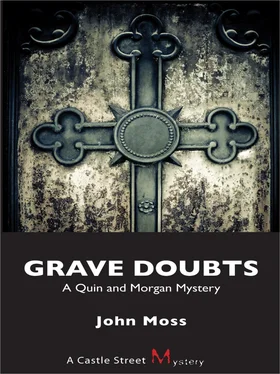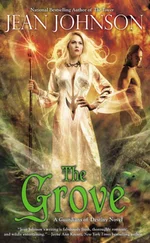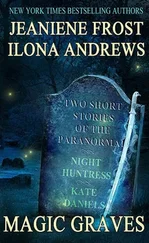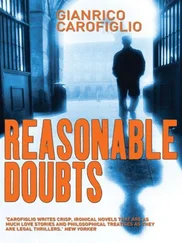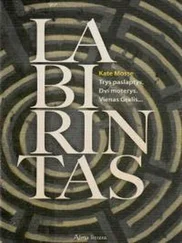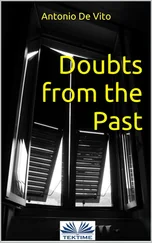John Moss - Grave doubts
Здесь есть возможность читать онлайн «John Moss - Grave doubts» весь текст электронной книги совершенно бесплатно (целиком полную версию без сокращений). В некоторых случаях можно слушать аудио, скачать через торрент в формате fb2 и присутствует краткое содержание. Жанр: Криминальный детектив, на английском языке. Описание произведения, (предисловие) а так же отзывы посетителей доступны на портале библиотеки ЛибКат.
- Название:Grave doubts
- Автор:
- Жанр:
- Год:неизвестен
- ISBN:нет данных
- Рейтинг книги:4 / 5. Голосов: 1
-
Избранное:Добавить в избранное
- Отзывы:
-
Ваша оценка:
- 80
- 1
- 2
- 3
- 4
- 5
Grave doubts: краткое содержание, описание и аннотация
Предлагаем к чтению аннотацию, описание, краткое содержание или предисловие (зависит от того, что написал сам автор книги «Grave doubts»). Если вы не нашли необходимую информацию о книге — напишите в комментариях, мы постараемся отыскать её.
Grave doubts — читать онлайн бесплатно полную книгу (весь текст) целиком
Ниже представлен текст книги, разбитый по страницам. Система сохранения места последней прочитанной страницы, позволяет с удобством читать онлайн бесплатно книгу «Grave doubts», без необходимости каждый раз заново искать на чём Вы остановились. Поставьте закладку, и сможете в любой момент перейти на страницу, на которой закончили чтение.
Интервал:
Закладка:
“So, she’s the anti-Marialogical principle at work.”
Miranda stared at her friend, amused and yet dismayed at the cheerful cynicism that she wrapped around herself like invisible armour. She reached across the table and touched her hand. Miranda’s own hand was pale and lightly corded with blue-green veins — a beautiful, mature hand. And Rachel’s was dark and smooth, with flecks of childhood scar tissue — the hand of youth and promise.
Rachel rolled her hand over and gave Miranda’s a squeeze, then they both sat back and for a few minutes said nothing.
It was Rachel who brought the conversation back to murder. She wanted to work homicide eventually. The bodies at Hogg’s Hollow were her first murder victims.
“It’s been two weeks since Hubbard disappeared,” Rachel said. “You’ve read her journals cover to cover. The forensic evidence is in: they were killed in the farmhouse. The provincial coroner’s office concurs: they died separately in the sauna — him first, and he was stored in the freezer. So, what don’t you know? What will she be able to add? You’ve got an airtight case, right?”
“Well, she could add herself, for a start. It’s hard to prosecute without her. But at least we won’t have another deadly scenario.”
“How so? How can you be sure?” The younger woman clearly regarded Miranda as her mentor in criminal matters, although Miranda suspected they were equally experienced in life.
“She doesn’t have access to the tools of her trade, so to speak. Think about reducing Morgan to a bunch of old bones and secreting them in an Indian burial tomb. That would have been a very complex affair.”
“Morgan was lucky.”
“Yes, he was. Of course, it was probably his one shot at sainthood.”
“Pity.”
“He’ll live with it.”
“A lot of what you do is wait.”
“For comics and cops, timing is everything.”
“You don’t really think she was abducted, do you?”
“No, I think she staged her own disappearance. Which means she’ll stage her reappearance as well. I suspect it’ll be spectacular. I’d say she set it up just so. Even leaving her journals behind. She wanted us to know what she’s done. She’s building anticipation like an impresario. By flaunting perfidy, she stays in control.”
As Miranda walked home from the restaurant, Rachel’s questions about Shelagh Hubbard troubled her. She had read the journals with the meticulous care of a textual scholar, but what resonated in her mind was the embedded personality, so blatant and yet obscure, taunting with its inaccessibility. It was as if from the beginning Hubbard wrote her journals for the eventual appreciation of witnesses. Were she and Morgan the only readers, so far? Presumably, yes. Morgan still had the binders at home. They had not compared notes, but she was sure their readings would differ.
Scotland Yard had responded to her queries about Madame Renaud’s and the Chamber of Horrors with surprising delicacy. They would look into the matter, they said. But Renaud’s is a venerable institution, housing effigies of great personages from throughout British history. It was not as if the police could simply march in and start peeling wax from faces that had accrued sanctity in their own right by virtue of their celebrity as fakes. They would get back to her.
It was a warm evening. The two men approaching through the dappled shadows on Isabella Street were in shirt sleeves. They had been drinking. Miranda tensed, and felt the reassuring bulge of her semi-automatic against her back. Their reeling became more exaggerated as they got closer, and on the excuse of intoxication, one of the men lurched against her. She pushed him out of the way, but the other man, on the pretence of assisting her, grasped her shoulders. She shrugged him off. Somehow, she was between them and she tried to sidestep off the curb.
Seeming to steady himself, the first man threw his arm over her shoulders. As she slipped out, the second man took hold of her waist from behind and lifted her. She kicked out and, breaking free, she reached for her gun. As she swung it around from the holster, both men froze.
“Hey, lady, we were — ”
“Shut up,” she said, heaving to catch her breath.
They looked terrified. They were young, probably university students. She motioned with her Glock for them to prostrate themselves on the sidewalk. Shocked sober, they fell to their knees and tumbled forward. One of them started to cry, sobbing softly into the pavement. A pool of urine spread between his legs. Both were shaking.
“Now, stay there,” said Miranda. “Don’t move. Don’t move a muscle.”
As she walked down the street, she could hear whispering. She stepped into shadows and looked back. They had lost sight of her. In a sudden scramble, they were both on their feet, stalk still, then running madly toward the lights of Yonge Street. Miranda put her gun away. She knew enough not to draw a firearm in a situation like that. She could have talked her way out of it — she only had to say she was a cop. On the other hand, she thought, they’ll think twice before hassling another woman. She might be packing a gun.
Her recovery rate was a testament to experience and by the time she got to her condo she had dismissed her muggers as nothing more than a nuisance. She whimsically rang her own buzzer, as she always did, in a ritual meant to scare burglars out of her apartment, avoiding the confrontation if she walked in on them unannounced.
She went straight to bed, but she tossed restlessly. The words in the binders echoed through her head in Shelagh Hubbard’s voice. Miranda felt she had been given an extensive tour of the innermost recesses of a psychopath’s mind and could not find her way out again. She had been enthralled as she read and disturbed to find herself understanding Morgan’s nearly lethal fascination.
Shelagh Hubbard’s prose was detached and precise. She described selecting her victims for their resemblance to the mutilated prey of murderers already on display. She described stalking her victims, befriending them, luring them to the chamber, poisoning them, bleeding and embalming the bodies, waxing, reconstructing their features, all as if she were recording daily activities in a diary. She wrote very well, with a curious blend of passion and restraint. Morgan had suggested all three binders read with the contrived disengagement of applications for scholarly grants, but he had missed the strong personality, evident by its absence. Staring into the darkness, Miranda could feel Shelagh Hubbard somewhere in the room. She did not believe in ghosts, but she recognized how inseparable in her mind the woman was from death itself.
CHAPTER TWELVE
Miranda woke up confused by images of the undead that flickered on the borders of consciousness. The undead. In the real world people were either dead or they were not. Life and death were mutually exclusive. There was being and non-being, with nothing between, except zombies and vampires. Nonsense, she thought. A stick of celery in the refrigerator was dead, but it had being — it existed. A body existed, no less in the world as a corpse than when it was alive. The Jewish man from the States and the young lesbian student who were posed in Shelagh Hubbard’s grotesque parody of the eternal embrace were more real from certain perspectives after they had died than before.
That is the problem with working homicide: the bodies have more significance than the lives they led. Miranda shuddered. We have that in common, she thought. Shelagh Hubbard and I, we both see life through the eyes of the dead.
The telephone rang.
“Morgan? Thank God it’s you. I’ve been thinking — ”
Читать дальшеИнтервал:
Закладка:
Похожие книги на «Grave doubts»
Представляем Вашему вниманию похожие книги на «Grave doubts» списком для выбора. Мы отобрали схожую по названию и смыслу литературу в надежде предоставить читателям больше вариантов отыскать новые, интересные, ещё непрочитанные произведения.
Обсуждение, отзывы о книге «Grave doubts» и просто собственные мнения читателей. Оставьте ваши комментарии, напишите, что Вы думаете о произведении, его смысле или главных героях. Укажите что конкретно понравилось, а что нет, и почему Вы так считаете.
